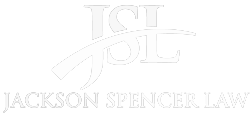In a historic move, President Biden has signed into law legislation ending forced arbitration on sexual assault and sexual harassment. The “Ending Forced Arbitration on Sexual Assault and Sexual Harassment Act” (EFA SASHA) was introduced by Sen. Kirsten Gillibrand and then-Sen. Kamala Harris and quickly gained bipartisan support.
This groundbreaking law will help protect victims of sexual assault and sexual harassment by giving them the opportunity to take their cases to court, even if they signed arbitration agreements.
If have been experiencing issues at work, such as age, gender, race, disability, religious, national origin discrimination, wrongful suspension, or wrongful termination, contact us for a free comprehensive assessment with our legal team.
What is the EFA SASHA?
For too long, forced arbitration has been used to silence victims of sexual assault and sexual harassment. This legislation will help ensure that those who have been victimized by these crimes can have their day in court and that their voices will finally be heard. This is a huge victory for survivors everywhere and one step closer to building a just work culture for all people.
What is Forced Arbitration and How Does it Affect Victims?
Forced arbitration is a process whereby an individual is required, as a condition of their employment, to resolve disputes with their employer through arbitration. This means that instead of going to court where the individual’s story can be presented to a jury of peers, the matter is resolved by a third-party arbitrator. Forced arbitration can be used in cases of sexual assault and sexual harassment, and it has been used by employers to silence victims and protect perpetrators.
In the past, employees who signed forced arbitration agreements did not get to resolve their allegations of sexual assault or harassment in court. Instead, they were forced to arbitrate, often with an arbitrator selected by their employer. Studies have shown that arbitrators tend to side with corporations over employees. And, even when the employee prevails in an arbitration, they typically receive up to 79% less money than if their case had been resolved in court. In other words, forced arbitration provisions tend to benefit employers and deprive employees of the justice they would see if their case had been litigated.
Compounding the inequity, the Supreme Court held in Epic Systems v. Lewis that employers could require employees to sign forced arbitration agreements or risk being terminated. This effectively gave employees little room to refuse forced arbitration agreements – compelling them to give up an important right or risk losing their job.
The EFA SASHA seeks to remedy the uneven playing field created by employers and the Epic Systems decision, giving employees a right to litigate even if they’ve been forced to sign an arbitration clause as a condition of their employment.
What to Do If You’re Assaulted or Harassed in the Workplace
Regardless of whether you’ve signed a forced arbitration agreement or not, sexual assault and harassment are illegal in the workplace. If you’ve been assaulted or harassed, here are some steps you should take to protect yourself and hold the perpetrator accountable:
- Report harassment to your employer as soon as possible. Employers must take prompt action in response to workplace sexual assault or harassment, so you must notify them about the incident. Be specific about the nature of the harassment and the identity of your harasser, even if it is uncomfortable to report details. It is always better to report harassment in writing, email if possible.
- Keep records of the incident at home. Record any times, dates, places, witnesses, and any relevant details regarding the incident in a notebook that you keep at home, not at work. It may be wise to also keep copies of any performance evaluations or complimentary emails that document the quality of your work before the incident as well.
- Speak with an employee rights attorney. Contact an attorney who represents victims of workplace sexual assault and harassment. They can help negotiate a resolution with your employer or litigate your case on your behalf.
Our Attorneys Can Help
If you or someone you know has been affected by sexual assault or sexual harassment in the workplace, we can help. Contact our office today for a free comprehensive assessment. We will fight for you and make sure that you get the justice you deserve.

